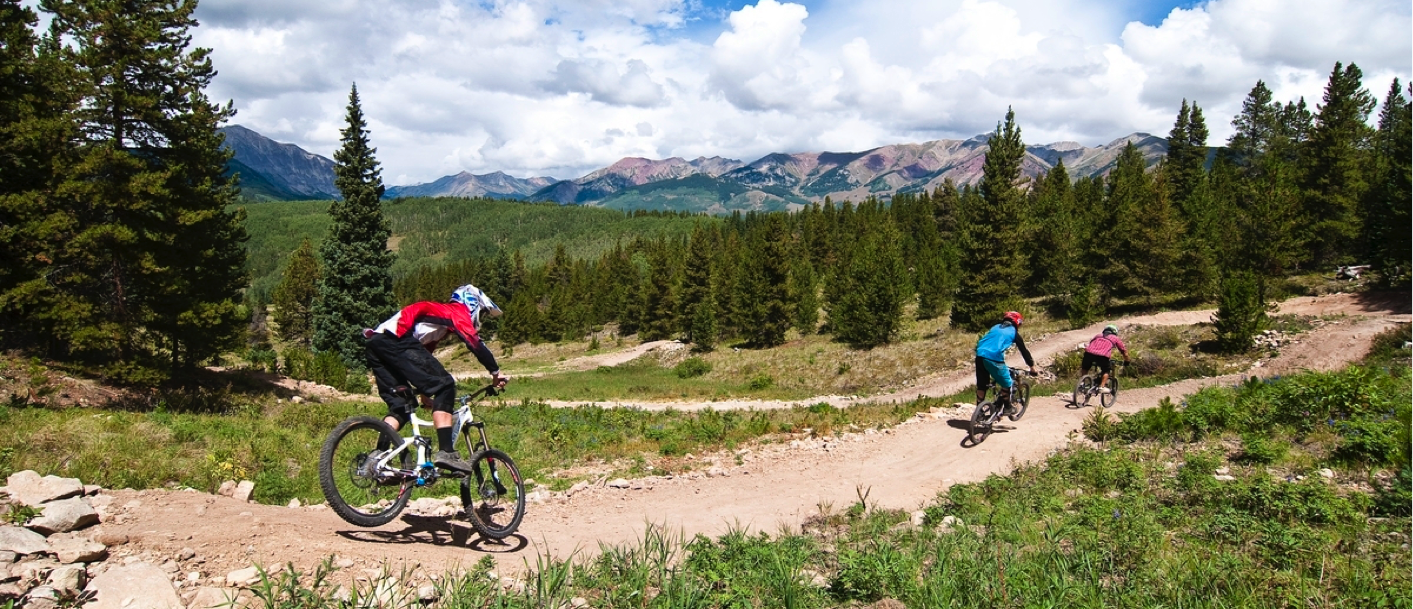Bike-friendly cities, off-road trails, and scenic country roads where cyclists can spin along in comfort aren’t just good for the people who live in those places. They also attract tourists. And tourists mean money for the local economy.
Tourism is one of the U.S.’s largest industries and biggest employers, creating millions of jobs and bringing in hundreds of billions of dollars each year (not to mention the tax benefits).
Bicycle touring has long had an honored place in the tourism economy and culture. This doesn’t go unrecognized: In Wisconsin, bike tourism is estimated to contribute $1.5 billion to the state’s economy every year.
It’s not just about paths or trails, though the measurable impacts these facilities have on local economies are a big deal. Bicycle transportation may not yet be mainstream in the U.S., but recreational bicycling is. More people ride bikes than ski, and more bikes than cars are bought here every year — presumably for the purpose of family rides along the riverside trail and the like.
For communities looking to up the ante, in adventure or economic development, there are many enticing opportunities for bicycle touring beyond a short jaunt on the rail trail.
Take, as an example, RAGBRAI (that’s the Register’s Annual Great Bicycle Ride Across Iowa), which calls itself “the oldest, largest and longest bicycle touring event in the world.” Now in its 39th year, the seven-day event follows a different route every year. Participants and spectators drop plenty of cash into small-town economies along the way — buying pancakes, beer, massages, and souvenirs. The ride also has a longer-term economic impact that’s harder to quantify — in marketing the state’s attractions and even in job creation.
Rides like RAGBRAI — few are nearly as large, but every state boasts smaller supported tours — introduce participants to the satisfaction and camaraderie of bicycle touring. And they are ambassadors of mutual goodwill, paving the way for acceptance in communities where a person on a bike on a rural road might otherwise be seen as an inconvenience.
 Bike touring in Hell’s Canyon, OR Photo: Elly BlueThen there’s unsupported touring. It’s the same thing you might do with a car — strap some basics to your rear rack and take off down the road to meet people, see sights, and gaze contemplatively at the road ahead.
Bike touring in Hell’s Canyon, OR Photo: Elly BlueThen there’s unsupported touring. It’s the same thing you might do with a car — strap some basics to your rear rack and take off down the road to meet people, see sights, and gaze contemplatively at the road ahead.
You can take a bike trip for next to no money by camping and picnicking your way down scenic country roads, picking up supplies and souvenirs at the same places locals shop, finding your focus in grueling mountain climbs and your joy in the long descents. At the other end of the spectrum is what a friend calls “credit card bike camping”: short hops between charming bed and breakfasts, stopping at every tucked-away restaurant and winery.
Either way, you’re expanding your horizons under your own power and putting your money directly into small, local businesses rather than into your gas tank or the chain hotels off the freeway.
There’s a resurgence of interest in this kind of touring, though few are embracing it as completely as Russ Roca and Laura Crawford, who a year and a half ago decided to sell all their possessions and take off across the country by bike without a set destination or plan. They financed the trip in part with speaking engagements at local bike shops, which have proven unexpectedly popular.
Roca and Crawford seem to be onto something. The rising price of gas and a growing disenchantment with cars, traffic, and the sedentary life mean have resulted in new interest in different types of vacations and adventures.
The hurdle, for local decision makers and business leaders who want to encourage bike tourism, is to avoid the pitfall of classifying bikes as purely recreational, a luxury alternative to the classic Sunday drive.
Welcoming bicycle tourists should go beyond a friendly attitude and amenities from business owners, though those two things certainly make a big difference.
The benefits of bike tourism aren’t just for rural communities. In Portland, with its well-established bikeway network, a survey found that 78 percent of visitors said that the city’s bicycle-friendly reputation played a role in their decision to travel here. Bikeshare systems can change a visitor’s experience of a city.
Bike touring, when it’s embraced at a policy level, breaks down the dichotomy between recreation and transportation. After all, bike-minded improvements in infrastructure and enforcement create healthier, more economically sound places not just to visit but to live.
Streets and roads where it feels comfortable to ride a bike are good for residents, tourists, and the economy.
This is the eighth column in a series focusing on the economics of bicycling.
Courtesy of Grist.org

